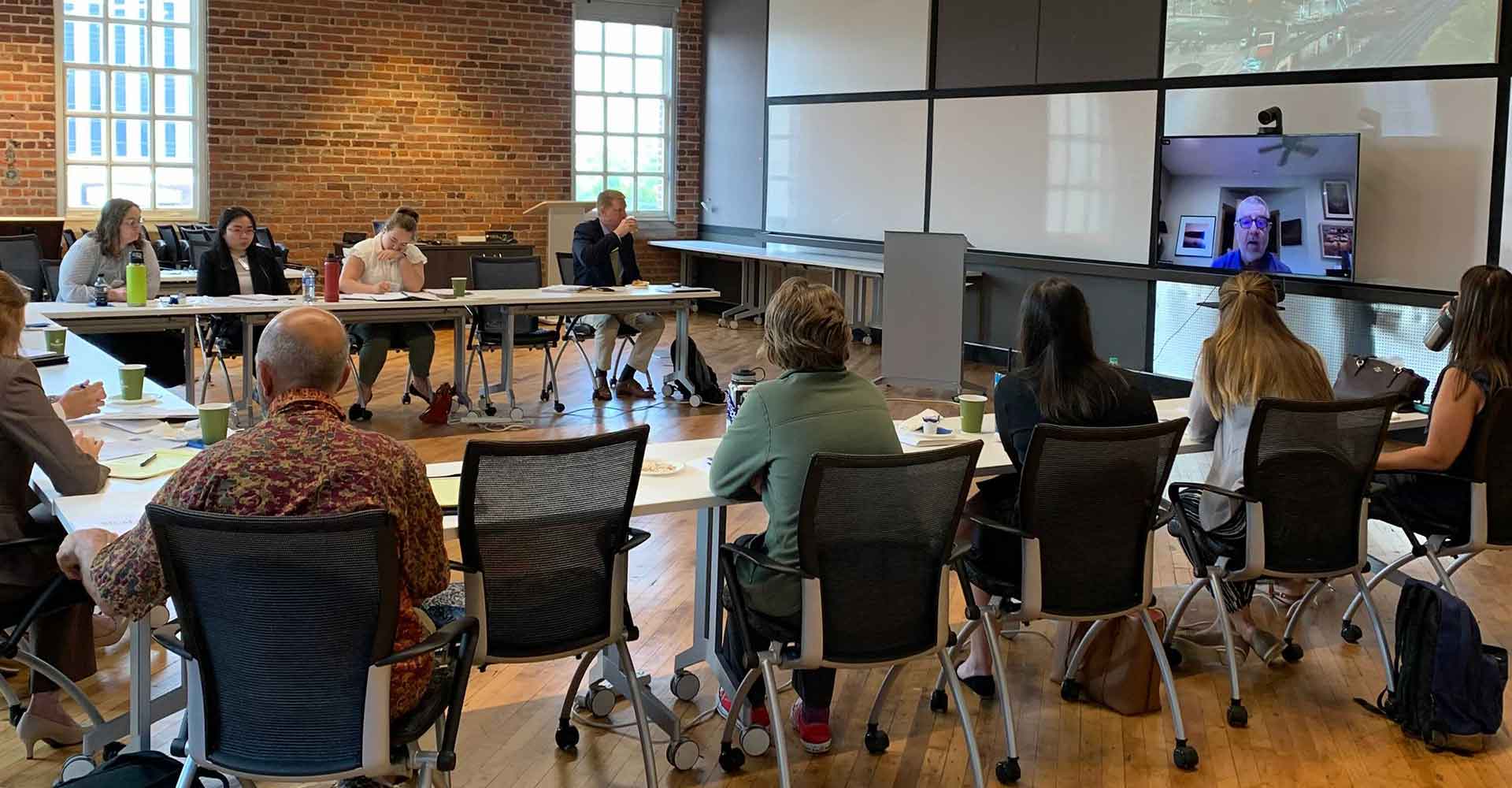News
.Back to listing
Wed, Aug 11
NC STEM Policy Fellowship Prepares Researchers to Serve in State Offices
Four graduate students from Duke, UNC, NCSU, and Wake Forest came together in July for a four-day policy-training bootcamp in preparation for their year-long stint in state government. Each year, the NC STEM Policy Fellowship selects scholars from science, technology, engineering, and math (STEM) to work alongside policymakers on vital policy challenges.
The program is five years in the making. Beginning in 2016 and with grant support from the Gordon and Betty Moore Foundation, two Duke graduate students, Andrew George and Dan Keeley, completed a feasibility study to adapt a successful California pilot program to North Carolina. Their effort, along with a similar effort at NC State University, resulted in a second round of support from the NC Sea Grant and Burroughs Wellcome Fund. The fellowship was then established under the leadership of NC Sea Grant Director, Susan White and this year marks the second class of fellows to enter state government.

The policy Bootcamp is a critical component of the fellows’ experience. During the initial feasibility study the Duke Initiative for Science & Society, the Sanford School of Public Policy and the Duke State Relations provided faculty and administrative guidance and future support for the program. Science & Society’s mission is to advance the responsible use of science and technology for humanity through research, education, communication, democratic deliberation, and policy engagement. Now years later, the Initiative is proud to provide policy experts and a training space for part of the bootcamp. Day three was held in the Bullpen at Duke, a contemporary collaborative space on the third floor of a renovated factory in downtown Durham.
“The NC STEM Policy Fellowship fits our mission of preparing students at all levels to understand the relationship between STEM, policy, and ethics,” says Michael “Buz” Waitzkin, the deputy director of Science & Society. “Making well-trained scientists available to state government is essential to formulating effective public policy.” Waitzkin joined the fellows remotely to present on the role of science in the courts and how the courts affect the use of science in policymaking.

“Buz Waitzkin’s talk was one of the most mentioned experiences among the fellows,” says Jamie Vernon, Executive Director and CEO of Sigma Xi. “[Duke Associate Professor] Matt Perault’s topic regarding misinformation and its spread on social media platforms was also especially prescient.” Vernon gave his own presentation on communicating science for policy and the media’s influence on the policy agenda.
Co-organizers and members from Sigma Xi participated in the bootcamp to develop a network and support structure for the policy fellows. Sigma Xi recognizes the potential in the NC STEM Policy Fellowship model to cultivate ongoing policy efforts. The organization hopes to set a standard that can be scaled across the country. With chapters in all 50 states, these programs are strong catalysts for developing networks in each state and among their schools and universities.
Strong local networks will be better suited to engaging state policymakers. Priorities vary from state to state and from organization to organization. A centralized governing body or a one-size-fits-all model would likely have mixed results. But a scalable training model adapted to specific political climates might have greater effect, while still providing valuable professional experience and non-academic career opportunities for scientists looking to engage in the policymaking process.
This Year’s NC STEM Fellows Include:
Matthew Kollman, P.E., Ph.D. Forest Biomaterials, Bioenergy and Bioproducts Engineering from NC State University will serve in the N.C. Department of Commerce Office of Science, Technology and Innovation.
Rachael Wolff, Masters of City and Regional Planning from UNC Chapel Hill with a Certificate in Natural Hazards Resilience will serve in the N.C. Department of Environmental Quality State Energy Office
Emma Hughes, Master of Environmental Management from Duke University will serve in the N.C Department of Natural and Cultural Resources Office of the Secretary
Stephanie Batalis, Ph.D. Biochemistry from Wake Forest School of Medicine
Will serve in N.C. Biotechnology

